
Why we need global rules to crack down on cybercrime
Cybercrime is high on the agenda of nation states, corporations and international organizations everywhere.

Cybercrime is high on the agenda of nation states, corporations and international organizations everywhere.
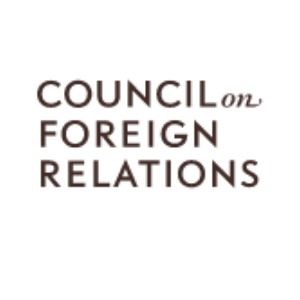
Between July 25 and 29, UN member states gathered in New York for the third substantive session of the Open-Ended Working Group on the security in and of information and communications technologies (OEWG)
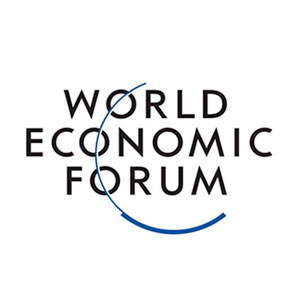
Data privacy exchanged for frictionless convenience is being compromised, stolen and leaked with disturbing regularity.
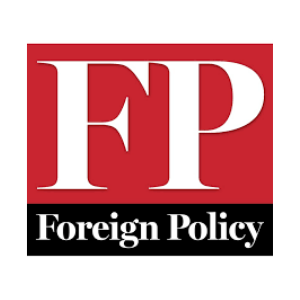
If we didn’t know already, the COVID-19 pandemic has driven home the fact that data is the most important strategic asset of the 21st century

Central Asia is the staging ground for a new digital Great Game
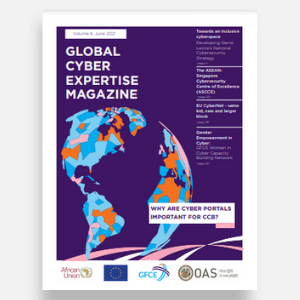
Louise Marie shares below some reflections on the importance of Cyber Portals to CCB and the lessons learned from the process of developing the national portal

The COVID-19 pandemic is generating monumental challenges for most governments, corporations and societies, both online and off.

Late last year, Colombia’s federal police arrested Diego Optra, a crime boss who heads a ruthless gang called La Local in the port city of Buenaventura.

All during 2020, as the coronavirus pandemic swept around the world, another novel virus with devastating long-term effects spread unnoticed worldwide

At 8:45 pm, five gunmen stormed the Holey Artisan Bakery, an upscale establishment in Dhaka, the capital of Bangladesh.

Central Asia was long a digital backwater

Brazilians are preparing nervously for their own municipal elections on November 15

The digital economy has finally arrived.

Recent political developments in the United States are threatening internet freedom and cybersecurity across Latin America.

What remains of the global, open internet came under attack this month.

Published in Council on Foreign Relations By Louise Marie Hurel The February 20 Brazil-EU Cyber Dialogue signaled the most recent step taken by Brasília and Brussels to collaborate on advancing responsible state behavior in cyberspace. While there have sometimes been differences in the two

Homicides in Brazil are projected to have fallen 16 percent in 2019 as compared to the previous year, although Latin America’s most populous nation still had more than 41,000 murders, the highest total number in the region

Rio de Janeiro’s ultra-conservative governor, Wilson Witzel, was elected in 2018 on a tough-on-crime ticket.

After years of procrastination, Brazil has finally adopted comprehensive data protection legislation. In mid-2018, the government approved Law 13.709, known by its Portuguese acronym, LGPD.

We are facing a climate emergency. More than 11,000 of the world’s scientists and successive reports issued by the International Governmental Panel on Climate Change say the evidence of human-induced global warming is irrefutable.

Make no mistake: the world is in the early stages of a techno-war against city governments and urban infrastructure. And while some cities have bolstered their capabilities to patch their vulnerabilities, they are entirely unprepared for the scale of cyberthreats that are coming.

Brazil holds a special place in popular consciousness. It evokes thoughts of sun kissed beaches and dense, luscious jungle as well as extreme violence and poverty.
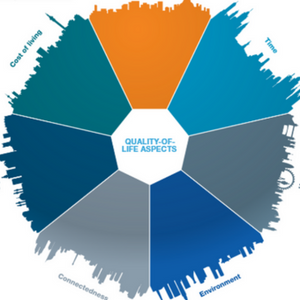
As cities get smarter, they are becoming more livable and more responsive—and today we are seeing only a preview of what technology could eventually do in the urban environment.

Most technologies are dual use: take the case of digital technologies that are fundamentally transforming governance, markets and development for the better.

The risk of cyber crime is growing in Brazil amid a debate over the balance between security and privacy. Robert Muggah and Nathan B. Thompson analyse the nature of the threat and consider the response of the state in a climate of significant economic and political uncertainty

The world is drowning in data. Every minute, there are roughly 456,000 tweets, 510,000 comments posted on Facebook, 999,000 Tinder swipes, 3.6 million Google searches, 4.1 million Youtube videos watched, and 103 million spam emails.

A bill passed yesterday by Brazil’s Lower House marks a major step forward in the push for privacy. 30/05/2018 The world is awash in data. Each minute, people around the globe take 47,000 Uber trips, write 456,000 tweets, conduct 3.6 million Google searches and

27/04/2018 By Deirdre Collings and Robert Muggah Originally published on iPolitics In war-torn Syria, the contents of one’s phone mean the difference between life and death. “My phone is my lifeline,” Umm Hassan told us, one of the more than 150,000 Syrian citizens fleeing the destruction

The Brazilian government has launched a consultation on the future of CGI.br, the body that sets internet policy in the country. Some fear that the Temer administration is trying to gut it.

JOTA April, 2017 New infrastructure will make Brazil an even more critical component of the world’s Internet Three years ago, former President Dilma Rousseff signed the Marco Civil da Internet into law. This crowdsourced digital bill of rights provides key guarantees for Brazilian citizens

The Igarapé Institute uses cookies and other similar technologies to improve your experience, in accordance with our Privacy Policy and our Terms of Use, and by continuing to browse, you agree to these conditions.

O Instituto Igarapé utiliza cookies e outras tecnologias semelhantes para melhorar a sua experiência, de acordo com a nossa Política de Privacidade e nossos Termos de Uso e, ao continuar navegando, você concorda com essas condições.

